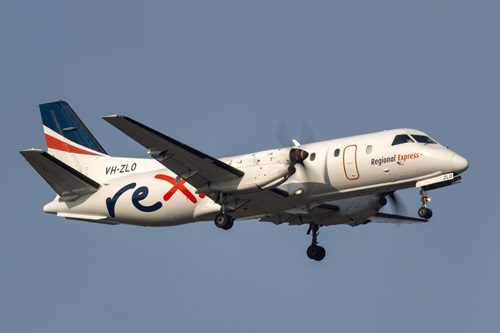 In a shocking development that sent ripples through the aviation industry, Regional Express (Rex) Airlines has grounded its jet flights between Australia’s major cities after entering voluntary administration. Founded in 2002 following the collapse of Ansett Airways, Rex has long operated under the slogan “our heart is in the country,” serving as a critical connection for remote Australian locations.
In a shocking development that sent ripples through the aviation industry, Regional Express (Rex) Airlines has grounded its jet flights between Australia’s major cities after entering voluntary administration. Founded in 2002 following the collapse of Ansett Airways, Rex has long operated under the slogan “our heart is in the country,” serving as a critical connection for remote Australian locations.
The Vital Role of Rex in Regional Connectivity
Despite these routes only accounting for approximately five per cent of domestic passengers, the significance of Rex’s services extends far beyond mere numbers. These flights are lifelines, providing indispensable connections between remote areas and urban centres. Dr Ian Douglas from UNSW Sydney’s School of Aviation underscores the importance of these routes, particularly for healthcare access in rural Australia. “If Rex completely fails, it puts remote medical care at risk,” he asserts, highlighting the airline’s crucial role in ensuring the well-being of many Australians.
The cessation of Rex’s intercity flights has isolated numerous smaller regional centres, impacting not just healthcare but also education, tourism, and local industries. “Rex has an important role in keeping the country more connected, which helps us all thrive economically and socially,” says Dr Douglas. He warns that Rex’s failure would lead to higher ticket prices for consumers and further isolate regional communities.
The Downfall: What Went Wrong?
Rex’s financial woes have been mounting, with the airline reportedly losing $1 million per week on its Boeing 737 jet operations between major cities. The ambitious expansion, which began in March 2021 with a new route between Sydney and Melbourne and extended to Melbourne-Perth just last month, failed to achieve the necessary scale to be commercially viable. Dr. Douglas notes, “While Rex expanded their services beyond regional routes, the expanded network didn’t provide enough scale or frequency to be commercially viable. They were flying some major routes seven or eight times a day, while Qantas and Virgin were running up to four flights an hour at peak times.”
The aviation industry’s competitive nature, marked by the collapse of budget carrier Bonza in April and the failures of other domestic carriers like Impulse, Tiger Air, and Ansett Airways, paints a bleak picture. Allegations that Qantas and Virgin deliberately blocked rival services at Sydney Airport during peak times further complicated Rex’s expansion efforts.
Adding to the turmoil, the departure of Rex’s former executive chair, Lim Kim Hai, in June signalled underlying struggles. Lim, a significant shareholder, initiated a process to remove several directors, including former transport minister John Sharp, from the board. This leadership shakeup came amid increasing financial instability, leading to the current crisis.
Future Prospects: Can Rex Survive?
The aviation landscape is no stranger to turmoil. Virgin Australia’s survival through administration during the COVID-19 pandemic by streamlining services and fleet offers a potential playbook for Rex. With only nine 737 jets in operation, Rex’s path forward may require similar strategic adjustments.
Speculation about an overseas private equity firm, PAG, potentially becoming the new owner adds a layer of uncertainty. PAG had previously funded Rex’s capital city routes expansion, indicating a vested interest in the airline’s future.
While the Federal Government desires to ensure a robust aviation sector by keeping Rex’s regional routes operational, concrete financial support remains forthcoming. The impending Aviation White Paper is expected to outline long-term policies that may provide clarity and direction for Rex’s survival.
Dr Douglas remains cautiously optimistic about Rex’s future, emphasizing the airline’s indispensable role in regional connectivity. “Several state governments and the Federal Government have indicated that it can’t be allowed to fail. They want and need to save the connectivity to the regions. Nobody is saying we should just let Rex die,” he concludes.
Conclusion
As Australia grapples with the potential fallout from Rex Airlines’ financial crisis, the broader implications for regional connectivity, healthcare, and economic stability come into sharp focus. The fate of Rex Airlines is not just a business concern but a national priority, underscoring the need for strategic intervention to preserve the lifelines that connect Australia’s most remote communities to the rest of the country.
Written by: Yves Thomas

















